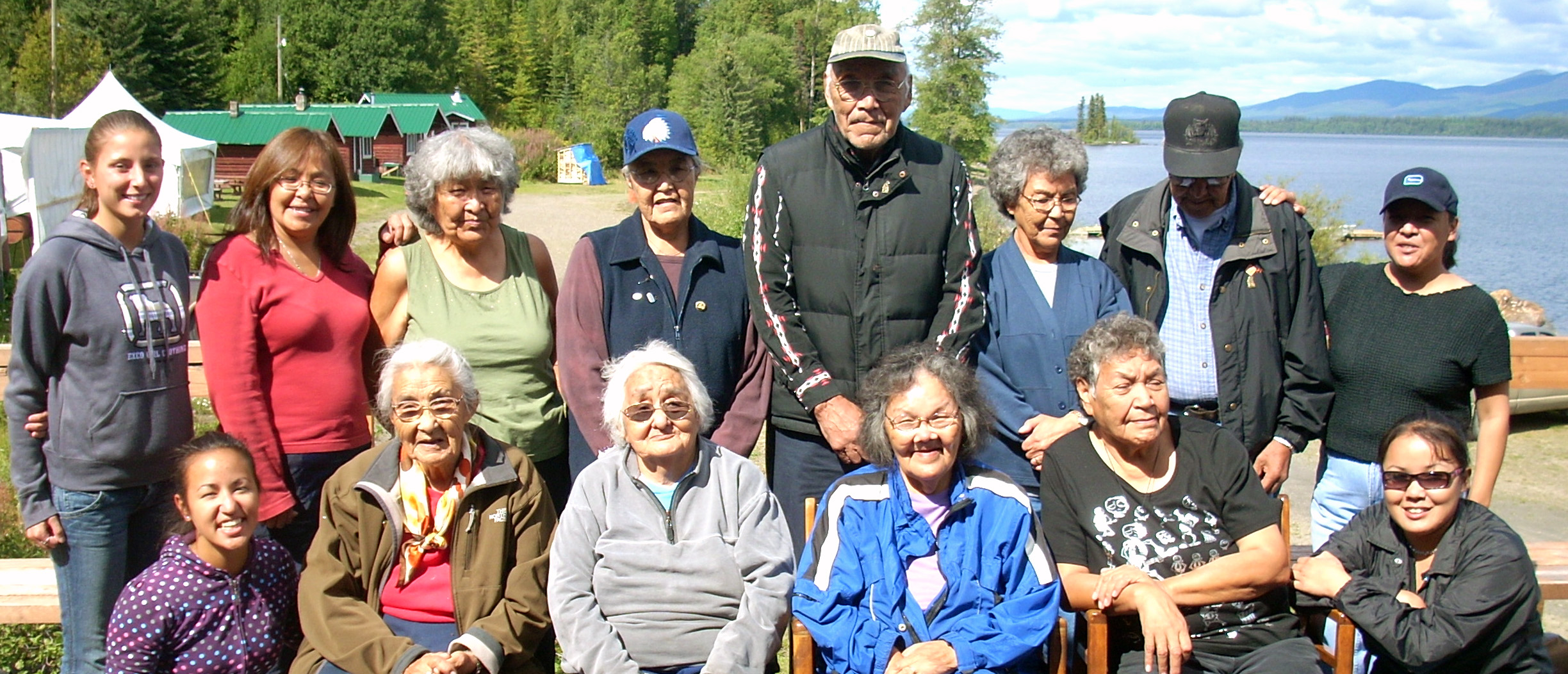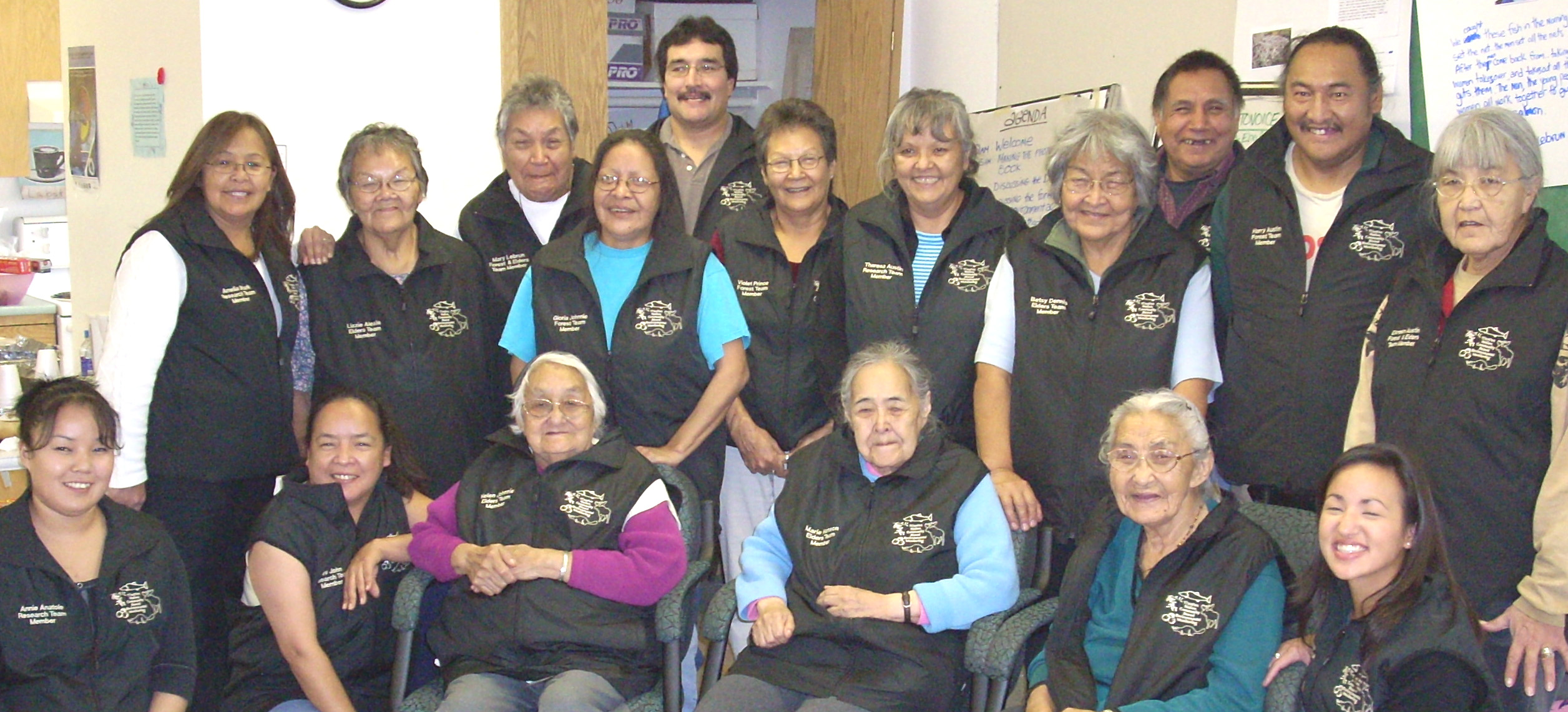Evolving Co-management Practice: Community-Based Environmental Monitoring with Tl'azt'en Nation on the John Prince Research Forest
Deanna Yim, MNRES
The purpose of this research project was to develop, apply, and evaluate methods for identifying Indigineous measures of co-management success, which support meaningful local involvement and give voice, respect, and legitimacy to traditional knowledge and values. Communities may define sustainability differently from each other and from experts, requiring a unique set of progress measures (Beckley et al. 2002). Community-based environmental monitoring is an approach by which First Nation communities can apply traditional knowledge, track the health of their environment, and implement locally relevant sustainability objectives.
In partnership with two teams of Tl'azt'en Nation community members (the Forest Team and the Elders Team), we developed 252 Tl'azt'en environmental measures that incorporated the knowledge, needs, beliefs, and concerns of the community. Knowledge co-production can generate a more holistic understanding of the environment than either scientific or Indigenous knowledge alone (Berkes 1999). Specifically, this project examined five focal plant and animal species, representative of traditional use activities. These five plants and animals, selected by Forest and Elders Team members, were: 1) Duje hoonayin~ picking huckleberries, 2) Yoo ba ningwus hunult'o~ gathering soapberries for medicinal use, 3) Huda ha'hut'en~ hunting moose, 4) Tsa ha tsayilh sula~ trapping beaver, and 5) Talo ha'hut'en~ fishing salmon. The 252 resultant measures will be field tested in future phases of the Tl'azt'en Nation community-based environmental monitoring initiative on the John Prince Research Forest.
Various research events that have taken place over the course of the project include: Forest Team focus groups, Forest Team member interviews, an Elders Team retreat, and a community product development workshop. The knowledge shared at these events has contributed to the formulation of Tl'azt'en environmental measures of co-management success, specifically related to environmental sustainability.
In addition to academic products, team members worked together to develop such community products as a book and a DVD.
On August 18, 2009, Deanna successfully defended her thesis titled, 'Evolving Co-Management Practice: Developing a Community-Based Environmental Monitoring Framework with Tl'azt'en Nation on the John Prince Research Forest.'
Beckley, T.M., Parkins, J., and Stedman, R. (2002). Indicators of forest-dependent community sustainability: The evolution of research. Forestry Chronicle 78 (5), 626-636. Berkes, F. (1999). Sacred ecology: Traditional ecological knowledge and resource management. London: Taylor and Francis.



Thesis:
Yim, D.K.Y. 2009. Evolving Co-Management Practice: Developing a Community-Based Environmental Monitoring Framework with Tl'azt'en Nation on the John Prince Research Forest. Unpublished Masters Thesis, University of Northern British Columbia, Prince George, BC. pdf
Research Products:
Project Book & DVD: Please contact the John Prince Research Forest (250-996-0028) if you are interested in copies of these collaborative community products.
Posters:
Presentations:
- Tl'azt'en Nation Community Thesis presentation, Tache, BC, August 19, 2009
- Aboriginal Policy Research Conference, Ottawa, ON, March 9-12, 2009
- Sustainable Forest Management Network State of Knowledge Project Workshop, Ottawa, ON, January 22-23, 2008
Community Project Updates & Information:
• Project Information Brochure, Summer 2007
• Forest Team Upate, Issue 1, August 2007
• Elders Team Update, Issue 2, August 2007
• Forest Team Update, Issue 3, December 2007
• Final Project Update, Issue 4, November 2008
• (After defense) Final Project Update, Issue 5, August 2009
© Tl'azt'en Nation and the University of Northern BC CURA - Partnering for Sustainable Resource Management, 2005
For more information or comments on the website, please contact Sarah Parsons, Research Coordinator